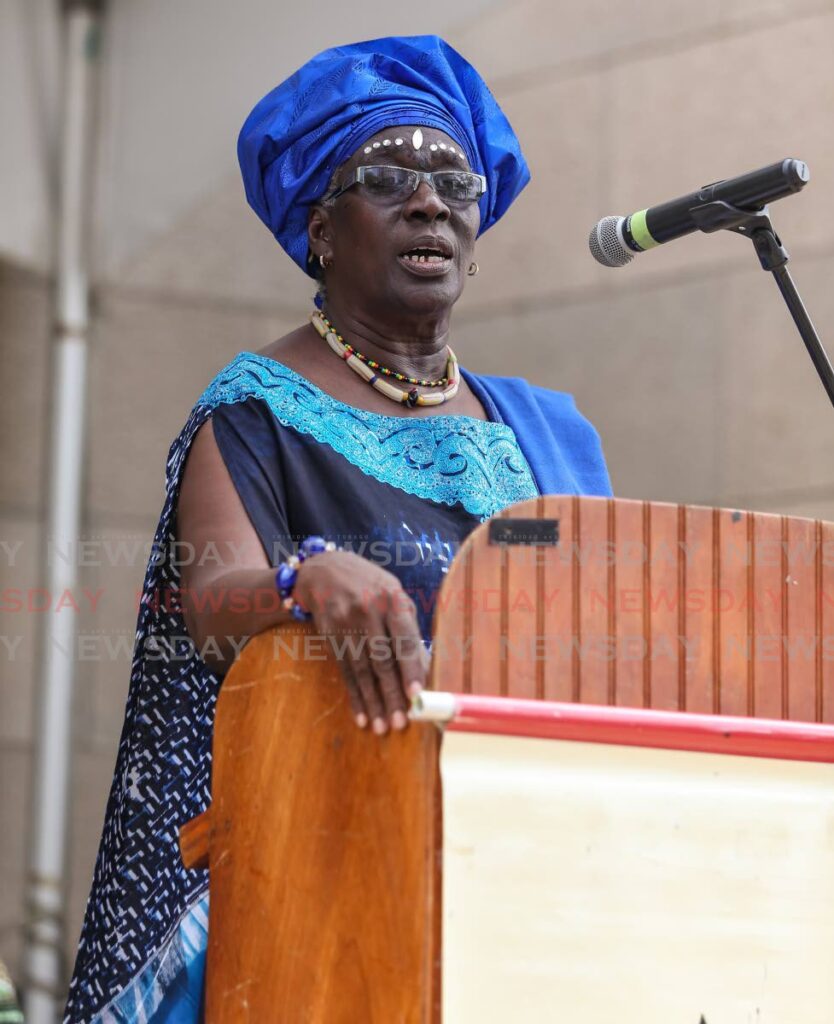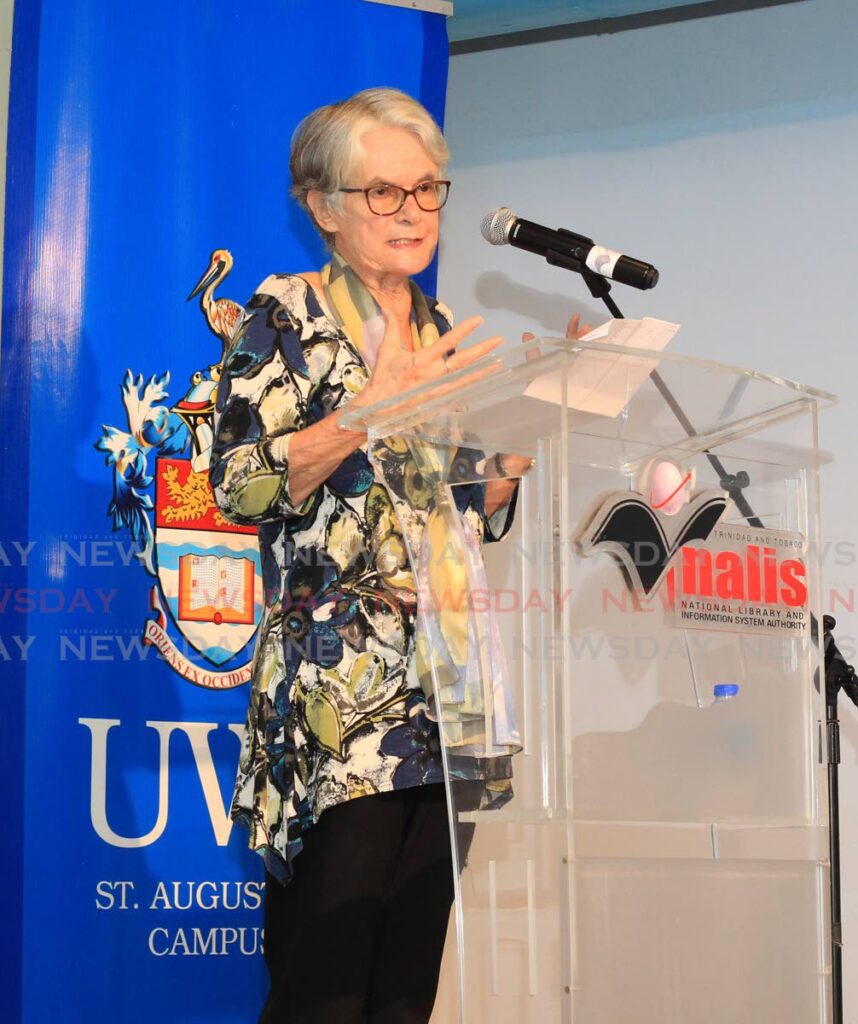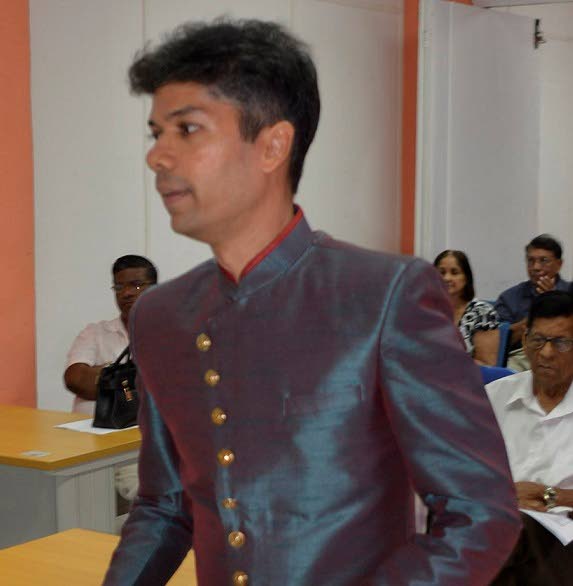Wadada: Afro-Trinidadian link with royalty good for country’s psyche

There are similarities between the West African country of Ghana and Trinidad and Tobago. Like TT, it is a relatively small in area on the African continent, and has a small population. It is also a country rich in oil and natural gas.
But the linkage between TT and Ghana goes beyond those similarities. The countries are connected through the Transatlantic Slave Trade.
King Otumfuo Osei Tutu II, The Asantehene’s visit to TT from July 30-August 5 has brought the importance of the connection between TT and Ghana into stark view. The Asante Empire was one that lasted from 1701 to 1901 and was located in what is now modern-day Ghana.
The King will be visiting for this year’s Emancipation observance. The Pan African Festival TT began in May and culminates with Emancipation celebrations on August 1.
Prof Emerita Bridget Brereton said Ghana – once called the Gold Coast – was one of the regions of West Africa where “men, women and children were kidnapped, enslaved and brought across the Atlantic and some ended up in TT.
“Unquestionably, there are people, today, in both islands (TT) who have ancestral links to modern-day Ghana which is where the King and the Asante people are located.”
His visit to the country also creates an opportunity for a different kind of storytelling about darker-skinned people and royalty, both Emancipation Support Committee (ESCTT) executive director Zakiya Uzoma Wadada and the UWI lecturer Dr Jerome Teelucksingh said.
Wadada said in 2020 the Prime Minister – following a visit to Ghana and being greeted by the Asante people – invited the Asantehene to be part of the Emancipation festival.
The invitation was accepted but was postponed as TT and the rest of the world was fighting the covid19 pandemic.
But earlier this year Uzoma Wadada and the committee were informed of the King’s impending visit.
She said his visit is significant for TT because Afro-Trinidadians “do not have a perception of ourselves linked with royalty.”
“When we think King and Queen, we think Europe and we think European. Normally, the perception of Africa is one of poor and suffering people, people going a rough time,” she said.
Poverty existed on the continent as it did everywhere else in the world, but the continent was also a rich one, she said.
Uzoma Wadada said the idea of Afro-Trinidadians being linked with royalty would be good for the country’s psyche as part of its self-healing in the Emancipation process.
When asked if she felt discussion around oil and natural gas would feature during the King’s visit, she said the committee has been hosting a trade and investment symposium for the past 22 years and the organisation has always been promoting trade between the continent, the region and country.
Uzoma Wadada said discussions about collaboration between TT and Ghana about oil and gas began some time ago.

Like Brereton, Dr Teelucksingh spoke to links between TT and Ghana because of the Transatlantic Slave Trade
He said, “As many of your readers know, the British exchanged items like guns, European goods, for slave and gold from the Asante.”
He said the enslaved would have been people who were captured or people who were sold to pay off debts.
“This slave system is our historical linkage between Africa and the Caribbean colonies,” Teelucksingh said.
He believes, however, that the King’s visit is particularly important for TT’s youth, many of whom did not have a sense of identity.
“I want to emphasise identity. Many of our young people do not know what it means to be a Caribbean person, a citizen of TT and this is why we suffer from the brain drain.”
Teelucksingh said he spoke to some young people at secondary schools and some unemployed ones who did not know their history and it was very sad.
Students who entered UWI and did the African history courses were the small minority exposed to it and, while many people had access to the internet, that was not the type of data/information that was consumed, he said.
He hopes the King’s visit will reignite an interest in African history and highlight the “greatness of Africa.”

Teelucksingh said many people had a distorted, stereotypical image of Africa as “backward, poverty-stricken, wars, social problems.”
He said in a conversation with two young people, a young woman said to him she did not know Africa had kings.
It saddened him to see darker-skinned people throughout the Caribbean bleaching their skins and that many people still hold a colonial mentality where “people of African descent feel they are ugly, inferior and their hair must be straight and nose must be different,” he said.
He while the country had gained its political independence, Teelucksingh said there still was not emotional, social and psychological independence.
Teelucksingh hopes the Asantehene’s visit won’t be the only one by African royalty and hopes more would come to “preach to TT’s youth about Africa then and now.”
The continent is rapidly developing and many people do not know of the infrastructural development and land reclamation techniques happening there, he said.
“I want the King to provide solutions to our young people who are involved in crime. We have a high murder rate, we have drug addiction and we have poverty and I want the King to see if he could assist with councillors for our people.”
Teelucksingh believes there is opportunity for collaboration not only economically, but socially and culturally as well.
As the world reshapes in the new knowledge economy, Teelucksingh said Afro-Trinidadian youth need to form knowledge blocks and drive discussion at global levels about important developmental happenings such as AI and digital technologies.
“The youths have to form a knowledge block and get out from the blocks in the neighbourhood. You see those blocks that keep them stagnant, that keep them intellectually and socially stagnant, they need to form the knowledge blocks that spread knowledge.”
He called on younger Trinidadians to become more knowledgeable about their history.

Comments
"Wadada: Afro-Trinidadian link with royalty good for country’s psyche"